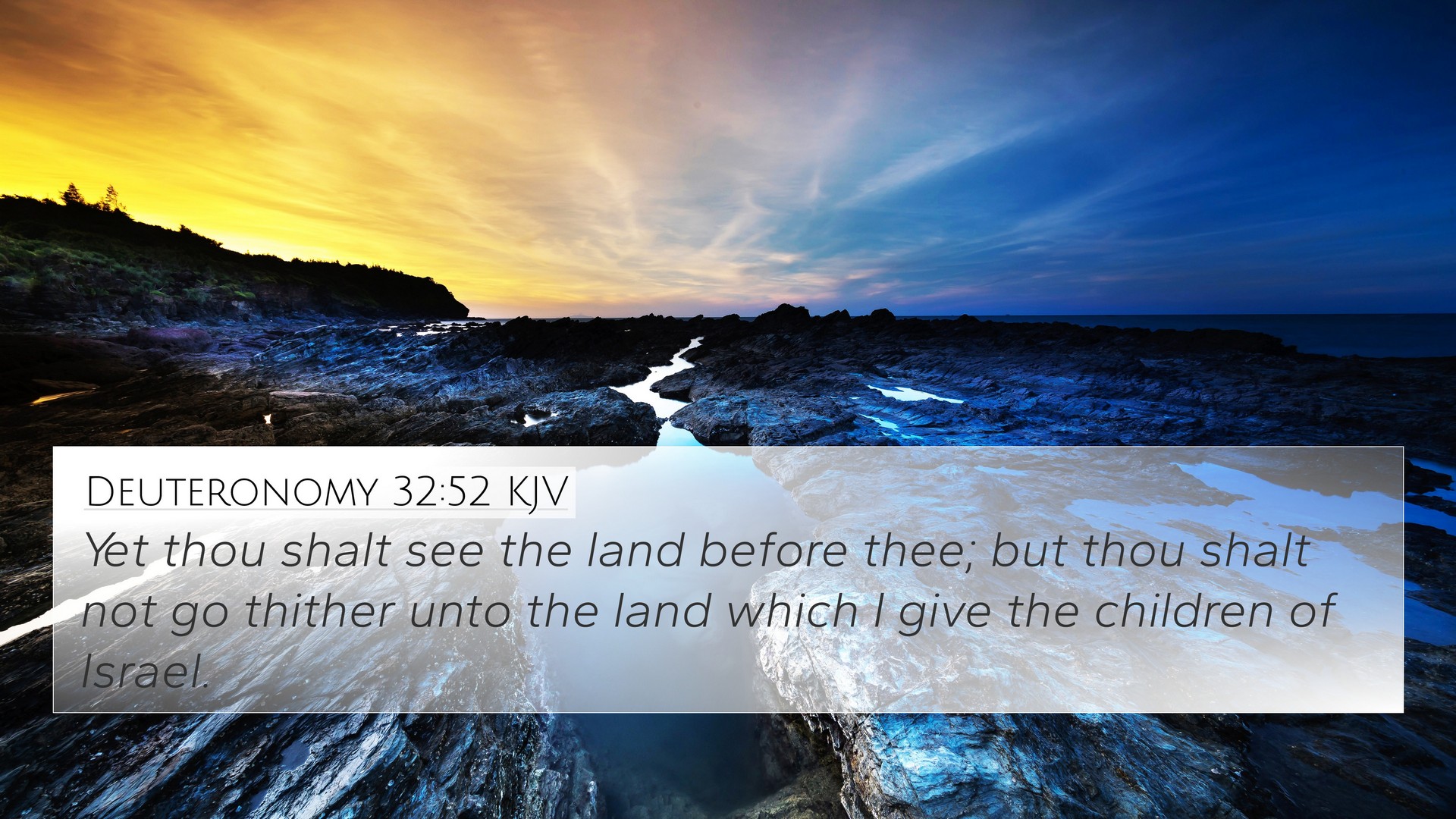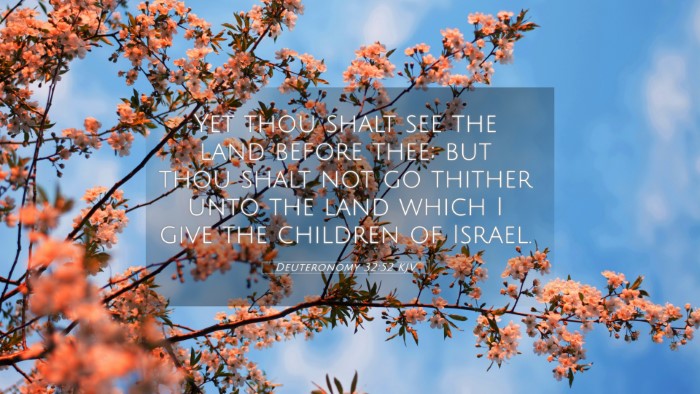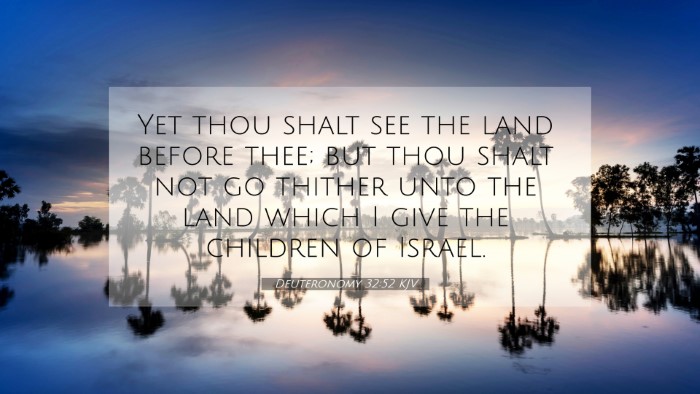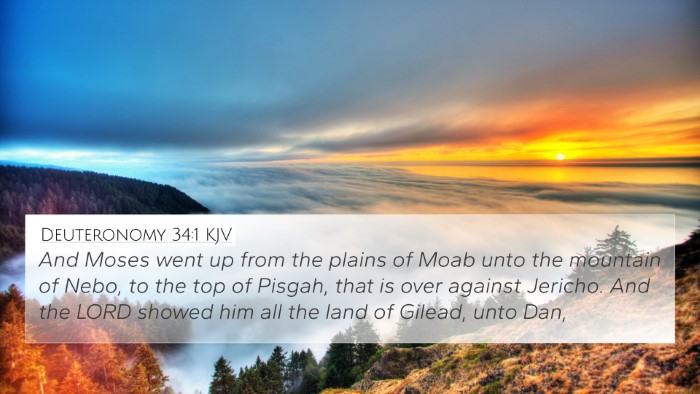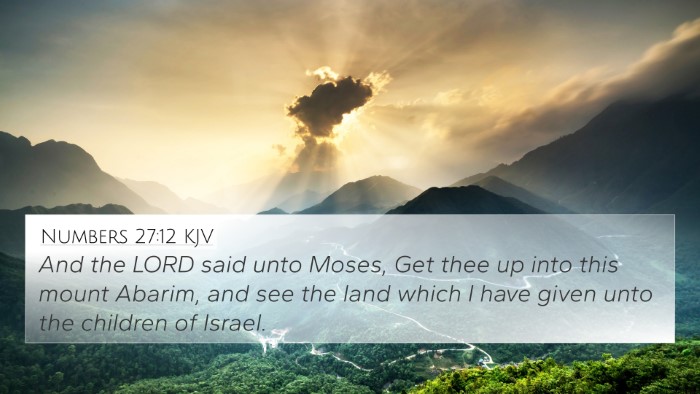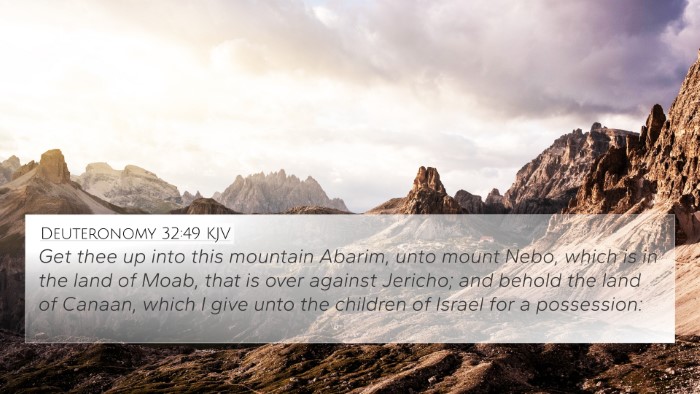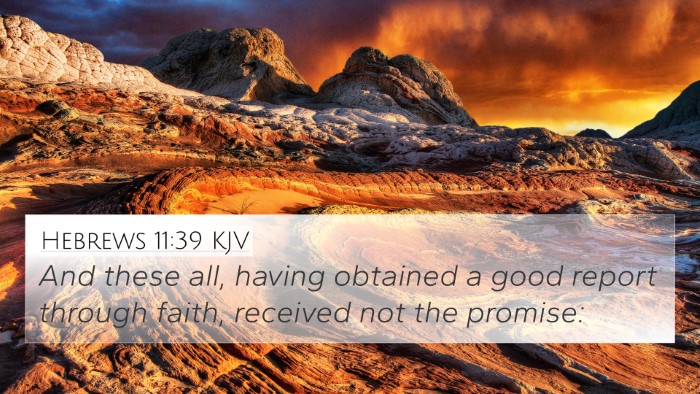Understanding Deuteronomy 32:52
Deuteronomy 32:52 states, "Yet thou shalt see the land before thee; but thou shalt not go thither unto the land which I give the children of Israel." This verse marks a significant moment in the biblical narrative, reflecting a culmination of Moses' journey and God's promise to the Israelites.
Overview of the Verse
In this passage, God informs Moses that he will be permitted to see the Promised Land, but he will not enter it due to his disobedience (Numbers 20:12). This distinction emphasizes God's justice and the repercussions of sin, even for His chosen leaders.
Commentary Insights
-
Matthew Henry's Commentary
Matthew Henry underscores the theme of divine justice in this verse. He notes that Moses was a faithful servant, yet his actions led to a consequence that prevented him from entering the Promised Land. This serves as a solemn reminder that God holds leaders accountable for their decisions, and disobedience can lead to significant spiritual consequences.
-
Albert Barnes' Notes
Albert Barnes highlights the intimacy of Moses' relationship with God, which makes the denial of entry into the Promised Land all the more poignant. Moses spoke to God face-to-face, yet he was not exempt from punishment. Barnes emphasizes that God's mercy is inherent, but His justice must also be upheld.
-
Adam Clarke's Commentary
Adam Clarke emphasizes the emotional weight of this moment for Moses. Clarke posits that while Moses will see the land, it reinforces a sense of longing and regret, as he had dedicated his life to leading the Israelites to this very destination. This verse serves as a theological reflection on ambition and the realization of goals that may remain unattainable due to prior actions.
Thematic Connections
Deuteronomy 32:52 serves as a critical juncture in biblical theology, articulating themes of divine justice, accountability, and the bittersweet nature of unfulfilled promises. Understanding this verse in relation to others enhances its significance in the narrative of God's covenant with Israel. Below are cross-references that align with its themes:
- Numbers 20:12: Highlights Moses' disobedience and God's response.
- Hebrews 3:17: Discusses the consequences of disobedience experienced by the Israelites.
- Deuteronomy 1:37: Notes God's anger at Moses concerning the Promised Land.
- Deuteronomy 3:23-27: Moses' longing to enter the land and God's prohibition.
- Psalm 106:32-33: Reflects on the rebellion at Meribah, where Moses struck the rock.
- Matthew 5:19: Speaks to the necessity of observing God's commandments, echoing Moses' call to obedience.
- 1 Corinthians 9:27: Reminds that even servants of God must exercise self-control to avoid being disqualified.
- 2 Timothy 4:7: Paul's reflection on finishing the race, similar to Moses' journey.
- Romans 11:22: Discusses the kindness and severity of God, paralleling Moses’ fate.
- James 3:1: A warning about the greater judgment that teachers face, akin to Moses' experience.
Conclusion
Deuteronomy 32:52 serves not only as a moment of personal reflection for Moses but also as a broader lesson on fidelity to God's commands and the serious nature of leadership responsibilities. Understanding this verse through public domain commentaries dives deep into themes of justice and mercy, revealing the profound theological implications of God's covenant with His people as illustrated throughout Scripture.
Exploring Bible Verse Connections
For those interested in cross-referencing Biblical texts, this verse interacts significantly with others that discuss divine judgment and grace. Engaging with a Bible concordance or using a Bible cross-reference guide can provide rich insights into how these verses communicate and expand upon shared themes.
Tools for Further Study
- Utilize a comprehensive Bible cross-reference material to explore intricate connections within Scripture.
- Employ Bible cross-reference systems to identify and study thematic Bible verse connections.
- Consider cross-referencing Bible study methods to enhance your understanding of how different verses relate.
- Seek Bible reference resources to enrich your study on specific topics, such as leadership and accountability.
Final Reflections
As we reflect on Deuteronomy 32:52, it's vital to recognize not just its isolated meaning but also how it integrates with broader themes in the Bible. Each Bible verse parallel adds layers of insight, illustrating the intricate tapestry of God’s messages throughout Scripture. This emphasizes the importance of inter-Biblical dialogue when interpreting scripture meaningfully.
